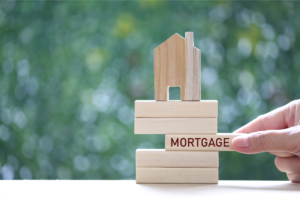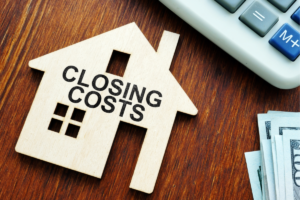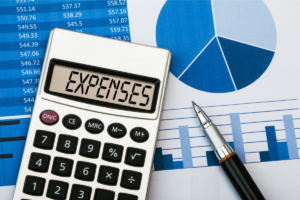Estimating Your Home Entry Expenses: Calculating the Financial Investment for Your Next Property
Estimating Your Home Entry Expenses: Calculating the Financial Investment for Your Next Property
Buying a new home is an exciting and significant decision, but it’s essential to consider the financial investment involved in the process. In addition to the purchase price, there are several other expenses you need to account for when estimating your home entry expenses. This blog post aims to provide a comprehensive guide to help you calculate the costs of acquiring a new property. By understanding these expenses upfront, you can make an informed decision and plan your finances accordingly.
Down Payment
The down payment is one of the most significant aspects of purchasing a home. It is the initial amount you pay towards the purchase price, with the remainder financed through a mortgage. The down payment size can have various implications, including the loan amount, monthly mortgage payments, and even the interest rate you receive. In this section, we will explore the importance of the down payment and guide in calculating an appropriate amount.
Understanding the Significance of the Down Payment
a. Loan-to-Value Ratio (LTV): The down payment determines the loan-to-value ratio, the percentage of the home’s value you finance with a mortgage. For example, if you make a 20% down payment, the LTV ratio would be 80%. Lenders often consider a lower LTV ratio less risky, resulting in more favorable loan terms.
b. Monthly Mortgage Payments: A larger down payment means borrowing less money, directly affecting your monthly mortgage payments. With a smaller loan, you’ll have lower principal and interest payments, potentially making homeownership more affordable.
c. Private Mortgage Insurance (PMI): If your down payment is less than 20% of the home’s value, you may be required to pay for private mortgage insurance. PMI protects the lender in case of default, but it adds cost to your monthly mortgage payments. Saving for a higher down payment can help you avoid PMI.
d. Interest Rates: Lenders often offer better interest rates to borrowers with larger down payments. A higher down payment demonstrates financial responsibility and reduces the lender’s risk, potentially resulting in a lower interest rate. This can save you a significant amount of money over the life of the loan.
Determining an Appropriate Down Payment Amount
a. Financial Capacity: Assess your financial situation to determine how much you can comfortably afford as a down payment. Consider factors such as your savings, income, existing debt obligations, and other financial goals. It’s important to balance a substantial down payment and maintain a healthy level of emergency savings.
b. Loan Program Requirements: Different loan programs have varying down payment requirements. Conventional loans typically require a down payment of at least 3% to 20% of the home’s value. Government-backed loans like FHA loans may have more flexible requirements, allowing down prices as low as 3.5%. Research the loan programs available and understand their specific down payment criteria.
c. Affordability and Financial Goals: Evaluate how different down payment amounts affect your monthly budget and long-term financial goals. A larger down payment may stretch your savings, but it can reduce your monthly financial obligations. Consider the trade-off between immediate rescues and long-term financial stability.
Saving Strategies for a Down Payment
a. Create a Budget: Establish a budget that outlines your income, expenses, and savings goals. Identify areas where you can reduce discretionary spending and allocate those savings towards your down payment fund.
b. Set Up a Dedicated Savings Account: Open a separate savings account for your down payment. This can help you track your progress and prevent you from dipping into those funds for other purposes.
c. Automate Savings: Set up automatic transfers from your checking account to your down payment savings account. This ensures a consistent and disciplined saving approach, making reaching your target amount easier.
d. Explore Down Payment Assistance Programs: Research local and national programs that provide financial assistance to homebuyers. These programs can help bridge the gap between your savings and the required down payment, making homeownership more accessible.
Calculating the Down Payment Amount
To calculate the down payment amount, follow these steps:
a. Determine the purchase price of the home you intend to buy.
b. Research the down payment requirements for the loan program(s) you’re considering.
c. Multiply the purchase price by the required down payment percentage. For example, if the purchase price is $300,000 and the down payment requirement is 10%, the down payment would be $30,000.
Remember, the down payment is just one aspect of home entry expenses. When planning your budget, it’s important to consider other costs, such as closing costs, moving expenses, and potential repairs or renovations.
The down payment plays a crucial role in the home-buying process. It impacts your loan-to-value ratio, monthly mortgage payments, potential mortgage insurance, and even the interest rate you receive. Assess your financial capacity, research loan program requirements, and consider your long-term financial goals when determining the appropriate down payment amount. By saving strategically and understanding the implications, you can embark on your homeownership journey with confidence and financial stability.
Mortgage Costs
 Mortgage costs encompass various fees and expenses associated with obtaining a mortgage loan. These costs are in addition to the down payment and are essential to consider when estimating the financial investment required for your next property. This section will explore the key mortgage costs you should know when calculating your home entry expenses.
Mortgage costs encompass various fees and expenses associated with obtaining a mortgage loan. These costs are in addition to the down payment and are essential to consider when estimating the financial investment required for your next property. This section will explore the key mortgage costs you should know when calculating your home entry expenses.
Loan Origination Fees
Loan origination fees are charges the lender imposes for processing and approving your mortgage application. These fees cover administrative costs such as underwriting, document preparation, and credit checks. Origination fees are typically calculated as a percentage of the loan amount, ranging from 0.5% to 1% of the total loan value. For example, on a $200,000 loan, a 1% origination fee would amount to $2,000.
Appraisal Fee
Lenders typically require an appraisal to assess the value of the property you intend to purchase. The inspection ensures that the property’s value aligns with the loan amount. The borrower typically pays the appraisal fee ranging from $300 to $500, depending on the size and complexity of the property.
Credit Report Fee
Lenders review your credit history and creditworthiness as part of the mortgage application process. They usually request a credit report from a credit bureau to assess your credit score and payment history. Obtaining a credit report is generally around $30 to $50.
Mortgage Insurance
Mortgage insurance is often required if your down payment is less than 20% of the home’s value. This insurance protects the lender in case of borrower default. There are two types of mortgage insurance:
a. Private Mortgage Insurance (PMI): PMI applies to conventional loans and is typically required until your loan-to-value ratio (LTV) reaches 80%. The cost of PMI varies depending on factors such as loan amount, credit score, and down payment size. It is usually calculated as an annual percentage of the loan amount, ranging from 0.5% to 1% of the loan value, divided into monthly payments.
b. Mortgage Insurance Premium (MIP): MIP applies to government-backed loans, such as Federal Housing Administration (FHA). It includes an upfront premium paid at closing, usually a percentage of the loan amount, and an annual premium divided into monthly payments.
Discount Points
Discount points are optional fees paid upfront to lower the interest rate on your mortgage. Each discount point typically costs 1% of the loan amount. You can reduce your interest rate by a certain percentage by paying points. For example, paying one discount point might lower your interest rate by 0.25%. The decision to pay discount points depends on your financial situation, how long you plan to stay in the home, and whether the upfront cost justifies the long-term interest savings.
Other Closing Costs
While not specific to the mortgage, closing costs are an important aspect of the home entry expenses. These costs include various fees for finalizing the home purchase and mortgage agreement. Common closing costs may include:
a. Title Search and Title Insurance: A title search ensures the property’s title is clear of any liens or legal issues. Title insurance protects the buyer and lender against unforeseen property title problems. The costs for these services can range from $500 to $1,500.
b. Attorney Fees: In some states, involving an attorney in homebuying is customary. Attorney fees can range from $500 to $2,000, depending on the complexity of the transaction and the attorney’s rates.
c. Escrow Fees: Escrow fees cover the costs associated with managing the transfer of funds and documents during the closing process. These fees are typically split between the buyer and seller, ranging from $500 to $2,000.
d. Property Taxes: Depending on the closing timing and the local tax cycle, you may be required to prepay a portion of the annual property taxes at closing.
e. Recording Fees: The deed and mortgage documents must be recorded with the appropriate government office when transferring the property’s ownership. Recording fees vary by jurisdiction but typically range from $100 to $300.
f. Homeowners Association (HOA) Fees: If you are purchasing a property within a community governed by a homeowners association, you may be required to pay an initial HOA fee at closing. This fee can range from $100 to $1,000.
It’s important to note that mortgage costs can vary depending on the lender, loan program, location, and loan amount. Researching and obtaining personalized estimates from multiple lenders is advisable to determine the mortgage costs associated with your home purchase.
Mortgage costs consist of various fees and expenses that are incurred during the process of obtaining a mortgage loan. Understanding and factoring in these costs when estimating home entry expenses is essential for financial planning. Loan origination fees, appraisal fees, credit report fees, mortgage insurance, discount points, and other closing costs can significantly impact the overall cost of acquiring a property. Considering these mortgage costs upfront, you can make informed decisions, compare loan offers, and effectively budget for your next home purchase.
Home Inspection and Appraisal
Home inspection and appraisal are two crucial steps in the home-buying process that help assess the condition and value of the property. These evaluations provide valuable information to buyers and lenders, ensuring that the investment in the property is sound. This section will delve into the importance of home inspection and appraisal and discuss the associated costs.
Home Inspection
A home inspection thoroughly examines the property’s condition, including its structure, systems, and components. It is typically conducted by a professional home inspector who evaluates the property for any existing or potential issues. Here’s why a home inspection is essential:
a. Identifying Deficiencies: A home inspector will assess the property’s structural integrity, electrical systems, plumbing, HVAC systems, roof, and other essential components. They will identify deficiencies, safety concerns, or necessary repairs, providing you with a comprehensive understanding of the property’s condition.
b. Negotiation and Decision-Making: The inspection report can be a valuable tool during the negotiation process. You can request repairs or negotiate the purchase price accordingly if significant issues are discovered. Sometimes, a home inspection may uncover severe issues that prompt you to reconsider purchasing the property.
c. Future Planning: Understanding the property’s condition allows you to plan for future maintenance and potential expenses. The inspection report will outline any immediate repairs and provide recommendations for ongoing maintenance, helping you make informed decisions about the property’s long-term care.
Appraisal
An appraisal is an unbiased assessment of the property’s value conducted by a licensed appraiser. The primary purpose of an assessment is to determine the property’s fair market value for the lender. Here’s why an appraisal is important:
a. Ensuring Fair Market Value: The appraiser evaluates various factors, such as the property’s size, location, condition, and comparable recent sales in the area, to determine its value. The appraisal ensures that you are not overpaying for the property and that the lender’s investment is protected.
b. Mortgage Approval: Lenders require an appraisal to ensure the loan amount does not exceed the property’s value. If the check comes in lower than the purchase price, it can affect the loan approval and require renegotiation or additional funds from the buyer.
c. Investment Protection: An accurate appraisal provides confidence that the property is a solid investment. It validates that the purchase price aligns with the property’s market value and helps safeguard against potential overpayment.
Cost of Home Inspection and Appraisal
a. Home Inspection Cost: A home inspection can vary based on the property’s size, location, and additional services requested. On average, a home inspection may cost between $300 and $600, but prices can be higher for larger or more complex properties.
b. Appraisal Cost: The cost of an appraisal is typically borne by the buyer and can range from $300 to $500, depending on the property’s size and complexity.
It’s important to note that these costs can vary depending on the location and service providers. Researching local rates and seeking recommendations when selecting home inspectors and appraisers is advisable.
Home inspection and appraisal are critical steps in the home-buying process. A home inspection comprehensively evaluates the property’s condition, enabling you to make informed decisions, negotiate repairs, and plan for future maintenance. An appraisal ensures the property’s value aligns with the purchase price and protects the lender’s investment. While home inspection and appraisal come with associated costs, they are invaluable investments contributing to a smooth and informed homebuying experience.
Closing Costs
 Closing costs are fees and expenses associated with finalizing the home purchase. The buyer incurs these costs and is typically paid at the closing or settlement of the transaction. Investigating closing costs is important when estimating the financial investment required for your next property. This section will explore common closing costs and their significance in homebuying.
Closing costs are fees and expenses associated with finalizing the home purchase. The buyer incurs these costs and is typically paid at the closing or settlement of the transaction. Investigating closing costs is important when estimating the financial investment required for your next property. This section will explore common closing costs and their significance in homebuying.
Title Search and Title Insurance
a. Title Search: A title search ensures the property’s title is clear of any liens, claims, or legal issues. This search verifies the property’s ownership history and identifies any outstanding encumbrances. The cost of a title search can range from $200 to $400, depending on the location and complexity of the investigation.
b. Title Insurance: Title insurance protects the buyer and lender against unforeseen property title issues. There are two types of title insurance: owner’s title insurance, which protects the buyer’s interest, and lender’s title insurance, which covers the lender’s interest. The cost of title insurance varies but is typically a one-time premium based on the property’s purchase price. The average cost ranges from 0.5% to 1% of the purchase price.
Attorney Fees
In some states, involving an attorney in the home-buying process is customary. The attorney provides legal guidance, reviews contracts and documents, and ensures a smooth closing process. Attorney fees can range from $500 to $2,000, depending on the complexity of the transaction and the attorney’s rates.
Escrow Fees
Escrow is a neutral third-party service that handles the transfer of funds and documents between the buyer, seller, and lender during the closing process. Escrow fees cover the administrative costs associated with managing the escrow account and facilitating the transaction. These fees are typically split between the buyer and seller and can range from $500 to $2,000, depending on the location and complexity of the transaction.
Property Taxes
Depending on the closing timing and the local tax cycle, you may be required to prepay a portion of the annual property taxes at closing. This ensures the property taxes are current and the responsibility is properly transferred to the buyer. The amount varies depending on the property’s location and closing time.
Recording Fees
The deed and mortgage documents must be recorded with the appropriate government office when transferring the property’s ownership. Recording fees vary by jurisdiction but typically range from $100 to $300.
Homeowners Association (HOA) Fees
If you purchase a property within a community governed by a homeowners association (HOA), you may be required to pay an initial HOA fee at closing. This fee covers the administrative costs of transferring the HOA membership and ensuring compliance with the association’s rules and regulations. The price can range from $100 to $1,000, depending on the HOA and its policies.
Other Miscellaneous Costs
Additional miscellaneous costs may be associated with the closing process, such as courier, wire transfer, notary, and document preparation fees. These costs can vary but generally range from $100 to $500.
It’s important to note that closing costs can vary based on factors such as the property’s location, purchase price, and the specific service providers involved in the transaction. It’s advisable to obtain a Loan Estimate (LE) from your lender, which outlines the estimated closing costs specific to your situation.
Closing costs are an essential component of the home-buying process. They include various fees and expenses incurred at the closing or settlement of the transaction. Understanding and accounting for these costs is crucial when estimating the financial investment required for your next property. Common closing costs include title search and insurance, attorney fees, escrow fees, property taxes, recording fees, HOA fees, and miscellaneous costs. Working closely with your lender, real estate agent, and an attorney can help you navigate the closing process and ensure that you are financially prepared for this significant milestone in homeownership.
Moving and Miscellaneous Expenses
Moving and miscellaneous expenses are important considerations when estimating the overall financial investment for your next property. These costs encompass various expenses associated with relocating and settling into your new home. This section will explore common moving and miscellaneous expenses to help you plan and budget effectively.
Moving Costs
a. Professional Movers: If you decide to hire professional movers, the cost will depend on factors such as the distance of the move, the size of your household, and any additional services required. Movers typically charge based on the weight of your belongings and the length traveled. On average, long-distance moves can range from $1,000 to $5,000 or more, while local moves are generally less expensive.
b. Truck Rental: Renting a moving truck or van is an option if you prefer a do-it-yourself approach. Rental costs vary depending on the vehicle size and the distance traveled. You may also need to consider additional expenses such as fuel, insurance, and equipment rentals (e.g., moving dollies, blankets).
c. Packing Supplies: Boxes, tape, bubble wrap, and other packing supplies are necessary for a smooth and organized move. The cost of packing supplies will depend on the quantity needed and where you purchase them. You can estimate spending around $100 to $300 for packing materials.
d. Storage: Additional costs may be involved if you require temporary storage for your belongings during the moving process. Storage fees vary based on the duration and size of the storage unit required.
Utility Setup Fees
When moving into a new home, you must set up electricity, water, gas, internet, and cable or satellite TV. Some utility companies charge setup fees, typically $30 to $100 per service. These fees cover the administrative costs of activating the utilities in your name.
Home Insurance
Homeowners insurance is essential to protect your investment and covers damages to your property and belongings. The cost of home insurance can vary based on location, property size, replacement value, and desired coverage. Obtaining quotes from multiple insurance providers to compare rates and coverage options is advisable.
Furniture and Appliances
If you’re moving into a larger space or your first home, you may need to purchase new furniture and appliances. The cost of furnishing your home can vary significantly depending on your preferences, needs, and the quality of your chosen items. Creating a budget and prioritizing your purchases based on immediate needs is essential.
Home Improvements and Repairs
Upon moving into your new home, you may want to make improvements or repairs to customize the space or address any issues identified during the inspection. The cost of home improvements and repairs can vary widely based on the scope of the project and the materials used. It’s important to allocate a budget and prioritize tasks based on urgency and affordability.
Other Miscellaneous Expenses
There may be additional miscellaneous expenses associated with moving and settling into your new home, such as:
a. Change of Address: Updating your address with various entities, such as banks, credit cards, subscriptions, and government agencies, may incur nominal fees.
b. Home Security Systems: If you choose to install a home security system, there may be costs involved for equipment, installation, and monthly monitoring fees.
c. Landscaping and Outdoor Upkeep: Depending on the property, you may need to invest in landscaping and outdoor maintenance equipment or hire professionals to maintain the exterior.
d. Cleaning Services: Before or after the move, you may opt for professional cleaning services to ensure a fresh start in your new home.
e. Homeowner Association (HOA) Dues: If your property is located in an HOA-governed community, you’ll need to consider ongoing HOA dues, which contribute to the maintenance and amenities provided by the association.
It’s important to consider these moving and miscellaneous expenses when creating a comprehensive budget for your home purchase. Conducting research, obtaining quotes, and planning will help you manage these costs effectively and ensure a smooth transition into your new home.
Moving and miscellaneous expenses are integral to the overall financial investment when buying a new property. Costs associated with hiring professional movers, renting a moving truck, purchasing packing supplies, setting up utilities, obtaining home insurance, buying furniture and appliances, and addressing home improvements should be factored into your budget. By planning and budgeting for these expenses, you can ensure a seamless transition and comfortably settle into your new home.
Conclusion
Estimating your home entry expenses is crucial for a well-planned homebuying journey. By considering the down payment, mortgage costs, home inspection, appraisal, closing costs, and other miscellaneous fees, you can better understand the financial investment required for your next property. Remember to research and consult with professionals for accurate cost estimates based on your circumstances. Being financially prepared will help you make an informed decision and embark on your homeownership journey with confidence.
To learn more details, let’s talk with Amar REALTOR®
Let’s schedule a meeting to review all your Real Estate goals!
![]()
Please Click to schedule a time on my online calendar at no cost!
https://www.amarrealtor.com/meetingwithamarrealtor/
Contact Amar REALTOR® today for more information about Buying/Selling a Home in the Bay Area!
Amar REALTOR® offers expert real estate services with proven results in the Bay Area Housing Market, including Homes for sale in Santa Clara County, San Mateo County, Contra Costa County, and Alameda County.
More Interesting Information about Bay-Area Real Estate
A Beginner’s Guide to Purchasing a Fixer-Upper Home as a First-Time Buyer
The Ultimate Decision: Should First-Time Homebuyers Consider Fixer-Uppers?
The Risks and Rewards of Investing in a Fixer-Upper Home as a First-Time Buyer
Fixer-Upper vs. Move-In Ready: What First-Time Homebuyers Need to Know
First-Time Homebuyers: Types Of Mortgages
The Risks of Unlicensed Contractors
First-Time Homebuyers: What You Need To Know Before Relocating?
Let's Connect with Amar, Realtor®
We would love to hear from you! Please fill out this form and we will get in touch with you shortly.
